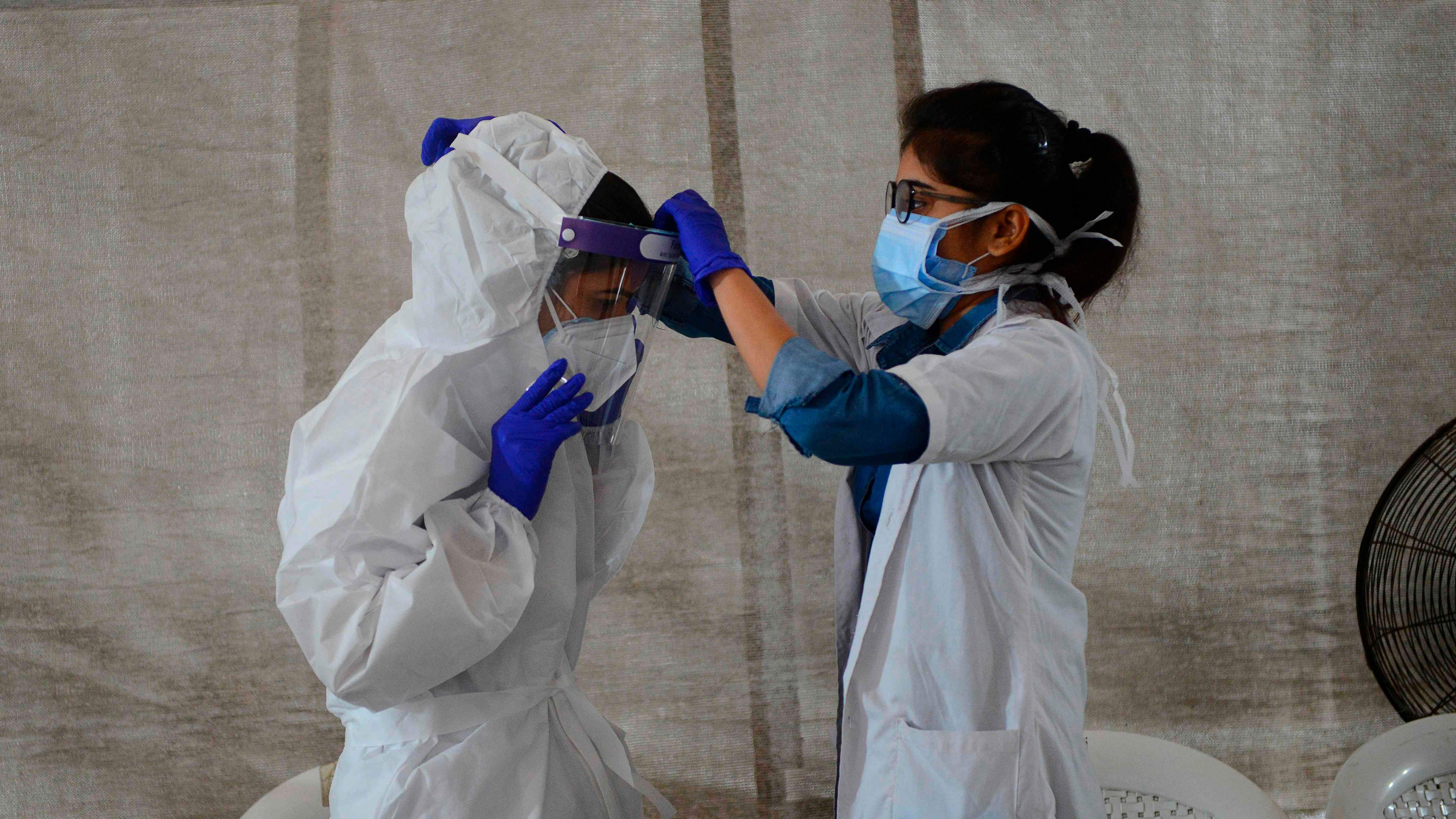
Antibody tests run on hundreds of people who have been vaccinated with the second dose of a Covid-19 vaccine indicates that booster shots may be required for the Indian population.
The findings were made over the course of checking antibody levels of nearly 30,000 people in Ahmedabad, Gujarat, by Neuberg Diagnostics. Out of these numbers, researchers focused on 500 healthcare workers, for whom they had detailed medical histories and a series of antibody reports hailing from one month after the first dose.
“All of these healthcare workers were doctors and nurses who had never been infected with Covid-19,” explained Dr Bhavini Shah, Head of Microbiology, Neuberg Diagnostics, Ahmedabad. “They had an antibody test done one month after they received their first dose of Covishield, plus another antibody test a month after they received their second dose. A third test was done three months after the second dose.”
She was speaking following a webinar on Thursday organized by Neuberg Diagnostics titled “Covid-19 Lessons Learned and Planning Forward.”
The lab found that the spike-protein IgG antibody titres of people who had received the first dose of Covishield ranged between 75 to 95 AU/mL (arbitrary units per milliliter). A month after their second dose, their antibody levels shot up to between 175 to 210.
“However, after three months while we expected the antibody titres to be 50% higher than the previous level, we found that in 40% of the cases, the levels were actually between 200 and 150 AU/mL. In about 10% of cases, their antibody titres had gone down to 90. There is a steady decline in titres,” Dr Shah told DH, adding that this means people would require a flu-like booster shot every year to pep-up immunity.
When it comes to spike-protein IgG, a value below 3.6 Au/ML is deemed as ineffective, the researcher added. “It depends on the kit used. In the s-protein kit, the negative value is below 3.6. In the RBD kit, any value below 50 AU/mL is infectious. Both of these figures are displayed in antibody reports because they provide an approximation of the antibody titre,” she said.
Curiously, none of the people showing antibody titre deterioration had comorbidities or other health factors which could explain the decline. Dr Shah said that most were healthy individuals in their early thirties, with another sizeable group being in their mid-fifties.
Researchers believe the variation is due to unique, induced body responses. In the case of people who had been infected with Covid-19 and subsequently inoculated with two doses, the researchers found an antibody titre level of at least 400 AU/mL.
An unrelated study of nursing home residents in France found that the median level of S-protein IgG among those previously infected with Covid-19 and subsequently inoculated with the Pfizer vaccine was 40,000 AU/mL or greater, while among inoculated people without prior Covid-19 was 48 AU/ml, three weeks after getting the first dose.